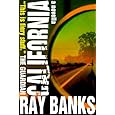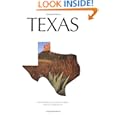The Department of Justice says that the law is racist to defend its ban on challenging state standards
The U.S. Department of Justice has upheld a law banning the identification of voters tell a Texas federal court that the law is an attempt by the Republican state largely white to withstand the impact politics of race demographic changes.
A five-day hearing in Washington that the Obama administration has the power to block Texas from requiring voters to produce photo identification ended Friday with Department of Justice attorneys strongly contest motivations of the legislation.
Texas says it aims to fight against the rising tide of voter fraud by requiring people to show specific forms of identification such as a driver's license or weapons in the polls.
The Ministry of Justice stated that the racist right, as it was built by the Legislature controlled by Republicans of Texas to the detriment of communities growing black and Latino in the state that strongly favor the Democratic Party.
The outcome of the case, which is scheduled for August, is likely to have an impact on other States where the Department of Justice is challenging similar laws, including Carolina Southern Mississippi and Florida.
The question should be completed before the Supreme Court.
administration lawyer, Matthew Colangelo, told the court on Friday that at least one in ten voters in Texas could be deprived by law because of the difficulties faced by the poor to obtain the necessary identification as having to travel long distances or pay for copies of birth certificates. He said that he intended the law.
"Four million new people moved to Texas between 2000 and 2010. Ninety percent of those minority. Texas, tried to eliminate the electoral strength at the edge of the minority exercise, "he said." It was adopted in the context of a high explosive growth of the Hispanic population. "
The administration also argues that the costs associated with obtaining a tax identification number prohibited by the Constitution.
A member of the Texas legislature, Trey Martinez Fischer, told the court that the electoral law proposed identification was carried through without any real debate on the use of measures such as the declaration of emergency legislation.
"There has been a determined effort to pass this bill in record time," said Martinez, who chairs the Mexican American Legislative Caucus.
another Democrat Wendy Davis, said his attempts to introduce amendments to the legislation that would allow voters to obtain an identity and make them available in every High Court order that voters did not have to make trips up to 250 miles in special offices were blocked by Republicans.
"The voter ID bill, every thought, a bill racist," he said.
Henry Flores, dean of the graduate school of the University of St. Mary in San Antonio, said in his testimony that the voter ID law is the latest of dozens of bills in response to changes significant population over the last 40 years.
"It seemed that [ID law] became a draft anti-immigration law," said the court. "Racing has been at the heart of the whole thing."
A study by the California Institute of Technology professor, J. Morgan Kousser, told the court that the Texas Republicans tried to present a voter identification law since 2005 and the state policy is "very racially polarized" with the state Democratic Party now dominated by Latinos .
John Hughes, acting Texas, ridiculed the government's claim that more than 1.5 million people are registered to vote may not be able to.
Find best price for : --California ----Matthew
----Matthew ----Texas
----Texas --
--
ไม่มีความคิดเห็น:
แสดงความคิดเห็น